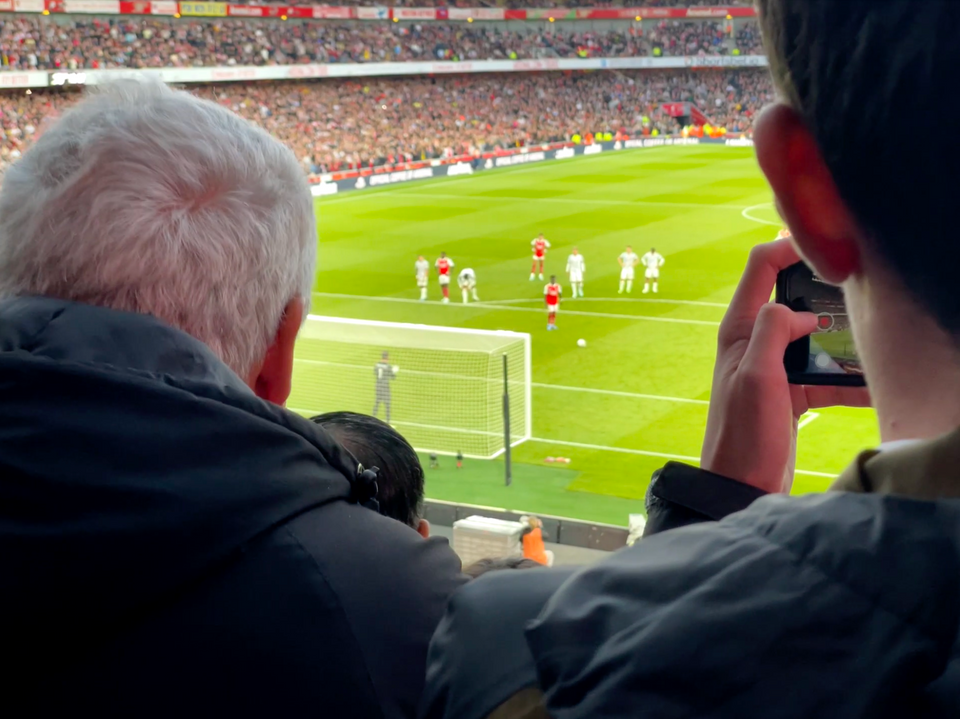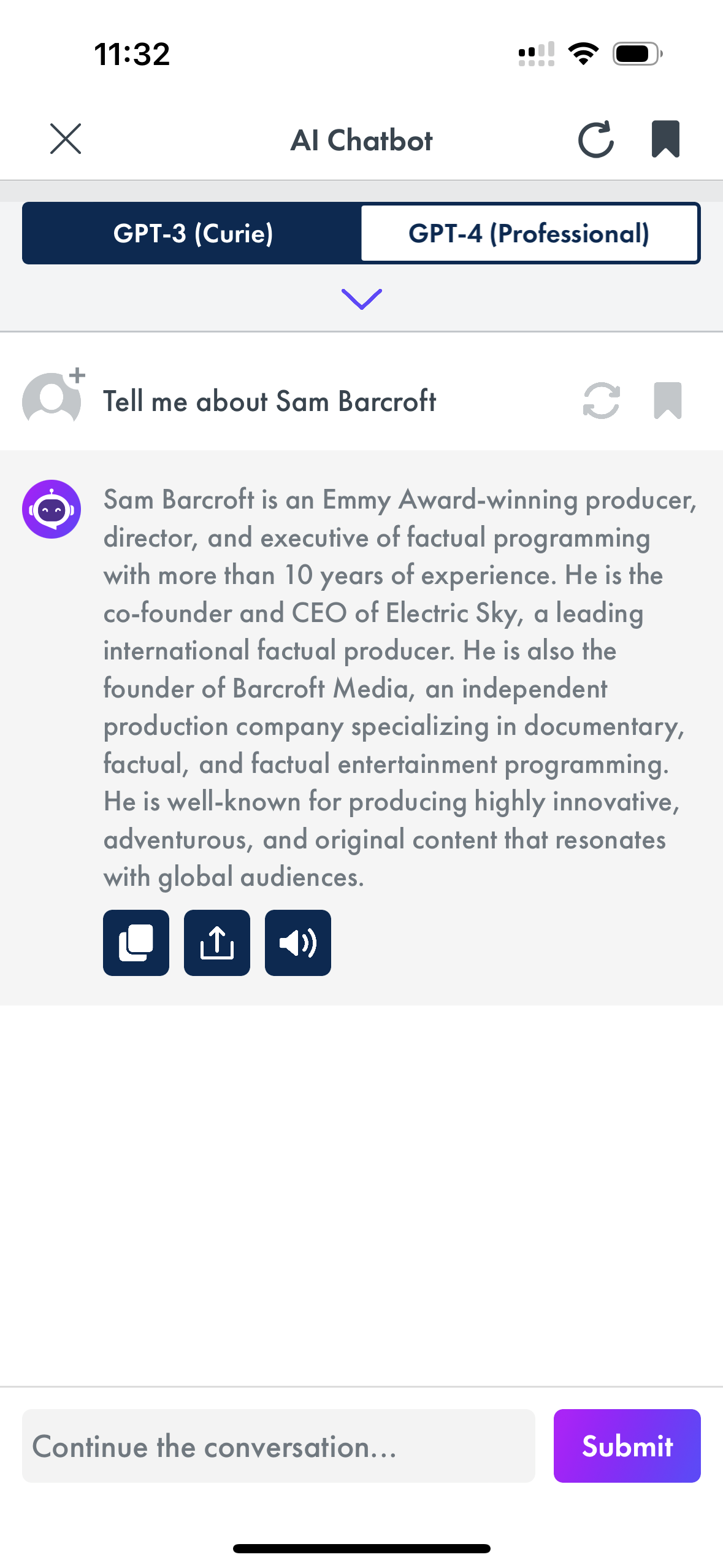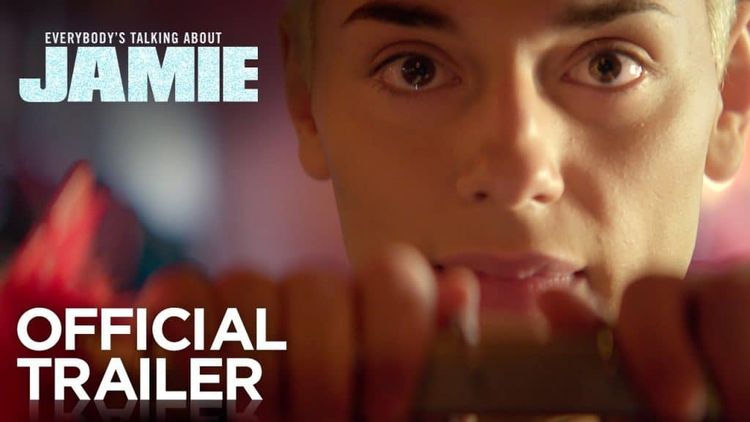⚽️ On the Premier League going Direct-to-Consumer, Heading to TED, and why AI is actually dumb 👾

> > To receive this email every Friday, subscribe to Creatorville for free < <
It's fast becoming the most successful sports league on the planet.
With a David vs Goliath race for the title, and a relegation battle involving around half the teams in the table, the Premier League is giving fans an incredibly entertaining season so far.
And according to reports this week, the EPL is debating whether or not to start its own streaming service.
Of course it is, right?
Why wouldn't you leverage your huge moment of success to take a bold leap into owning the entire revenue stream of English football fans around the world?
In fact, this isn't new news. Back in 2020, the EPL's CEO spoke about their plans to transition to a D-to-C model.
But three years later, we haven't seen that intent turn into outcomes.
Even when you have one of the world's most exciting entertainment brands, deciding to walk away from billions of pounds of guaranteed annual income from existing broadcast partners is a very big decision.
The EPL has become brilliant at selling the rights to view their football matches to huge broadcasters and media companies over the last 30+ years.
These are huge money, low-risk, high-margin deals.
All the EPL need to do is allow broadcasters to broadcast.
Many would say that if it's not broken, don't fix it.
But, the challenge is that in the UK, their last deal with broadcasters didn't follow the upward trajectory of previous auctions.
In the UK, free-to-air TV hasn't had live Premier League games for many years. The sums just don't add up for them.
And globally, many broadcasters are feeling a lot of cost pressures right now. One of their biggest outgoings will be the huge amount of money they pay to screen live EPL games. Which makes them a likely target for chipping.
So it looks like we might have reached Peak Football.
And, as the adage goes, if your business isn't growing, it's dying.
One of the only ways to keep making more money when you plateau is to figure out how to get closer to your customers and cut out the middleman.
Which, in this case, is the broadcasters.
However, launching a streamer is a massive task.
Most people are very used to the mundane reliability of streaming platforms like Netflix or YouTube.
Because they always seem to work, we decide that the technology is bulletproof and mistakenly assume that it must be easy to roll out.
But the truth is, it’s incredibly tough to supply live sport across the Internet.
ITV has faced problems with their live streams of major football matches, as did Optus in Australia.
Even Amazon's Prime Video, part of one of the worlds biggest data serving companies, had significant problems when they first started live streaming major tournaments, like the US Open tennis.
Last year's Thursday Night Football launch also didn't go entirely smoothly.
So for the EPL, streaming live sports to many millions of concurrent views across the globe would be one of the most challenging rollouts of video streaming technology ever.
And, how would you transition hundreds of millions of viewers from their existing bundled television subscription plans, which include football, to a standalone EPL streamer?
Customers would not want to be paying for both at the same time and may well have existing contracts that would keep them locked in with legacy providers.
And all this is without existing internal expertise in running a truly global customer service operation.
The EPL is essentially a licensing business at present. It would require a huge amount of corporate development to be ready to take on the global internet streaming platforms.
At the same time, the global internet giants are potentially about to double down on live sports as they up the stakes in the streaming wars. Apple is thinking about bidding for the EPL according to Bloomberg.
And maybe this prompts the EPL's major dilemma: should they wait to see if the mega-streamers will decide to do battle over EPL rights on a global basis for a whole new level of payday, or do they disrupt themselves and go fully vertical instead?
Disrupting any business once it is established is very, very difficult.
Most successful companies will not change unless there is a gun to their head.
And to implement change, you have to feel that there is no easier or safer choice than making a significant shift that carries risk.
So, how does the EPL ensure it is future-proofed at a time of great change?
My suggestion: Decide on three smaller territories to test an EPL streamer in, and then roll out a proactive initial D-to-C trial in just those markets.
Announce this trial in places where the audience profile is the best fit, rather than identifying territories that offer a low demand or fail to offer enough money.
This front-footed approach would immediately surface many issues, but the value of a genuine experiment in the real world would be huge.
The first attempt at anything is by far the hardest. So all the learnings from this set of relatively small experiments would prove invaluable over the coming years.
In a worst-case scenario where going D-C proved a struggle to implement and didn't make as much money as was hoped, the EPL could shut it after a couple of seasons and revert to licensing.
The good news? The Premier League would still hold an ace card in negotiations with potential broadcasters or streamers - namely: "We've proved we are prepared to go it alone if you don't pay up".
Going D-to-C was also the plan at England's Football Association.
When launching the FA Player a few years ago, they decided they wanted to be able to stream matches directly, rather than always working with broadcasters.
But instead of offering up their most valuable live events - England's Men's Internationals or the FA Cup, the FA have gone for an evolutionary strategy.
They have chosen to offer live streams of England under-18 games, and - far more significantly - have been live-streaming all the Women's Super League matches.
Whilst this is not going to significantly boost revenues in the short term, it is a clever way to build out competence and engage in a significant strategic test-and-learn experiment.
Armed with their own practical understandings, the FA are now able to make strategy based on experience rather than on hearsay.
They have future-proofed themselves.
And the FA are slowly building a direct digital connection with their fanbase - without the broadcaster middlemen getting in the way.
The big learning?
Positive disruption doesn’t have to mean an overnight revolution.
It can be delivered by committing to a sequence of careful, sand-boxed experiments.
Change is far more easily delivered in a continuous set of tiny steps, rather than in one giant leap.
So I'm expecting that eventually, I will watch my team - Arsenal - on either an EPL service or on the Arsenal App.
But I think as a UK resident, the cost of disruption is far too high for the EPL to bear right now. This change is still a decade away.
The challenge for the Premier League is a simple one - get on with proving you are willing to evolve or risk losing the dominance you currently enjoy.
Is AI actually quite dumb?
Following the recent launch of Chat GPT-4, many people have been rightly concerned about the power of Artificial Intelligence to cause major issues for humanity.
But people miss a few key points.
1. AI has been developed over the last 60 years. This technology is nothing new
2. It is still early - despite being trained on gigantic data sets, Chat GPT-4 gets most of its information from only US-based websites. It has little understanding of the rest of humanity's information or opinions.
3. It gets a lot of stuff entirely wrong.
Here's an example.
Last week I decided to ask Chat GPT-4 about myself. Check me out!

So - to clarify:
I've never won an Emmy.
I'm not a TV director.
I've never worked for Electric Sky.
Those are pretty fundamental errors for something with Intelligence written into its job title.
For me, AI will mostly continue learning and working away in the background, still helping make your YouTube suggestions more relevant, assisting you by routing your journey more efficiently and organising your travel reservation preferences.
But it has a very, very long way to go before it takes over the planet.
Time to Head to Ted
I've long been an admirer and consumer of TED content.
Their brilliant videos of remarkable speakers have entered the modern lexicon - most people have now heard of a TED Talk.
And a serendipitous sequence of events means I am off to Vancouver for this year's TED Conference.
So, if you happen to be heading there too - send me a message and let's hang out



